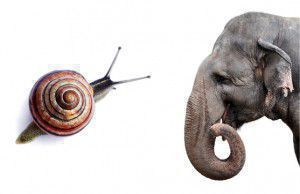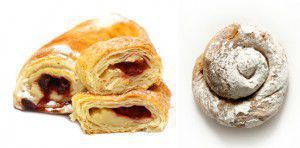Mum’s the word! How different languages say ‘mother’
Today is the day we celebrate ‘Mother’s day’ or ‘Mothering Sunday’ here in the UK.
Mum is one of those words we start to use from a young age; perhaps you used ‘mumma’, ‘mother’, ‘mam’ or ‘mummy’ instead; there are many ways to say it! Some languages offer a similar word to English, like ‘la madre’ in Spanish and in Italian. Typically the word for mother does start with an ‘m’ or a ‘b’ as these are soft and easy sounds when you’re a child, creating the ‘m’ noise is one of the easiest ones to make. In Afrikaans the word for mother is just ‘ma’ and in Swahili it’s ‘mama’.
However, that’s not always the case: in Fijian the word for mother is ‘tina’, in Kurdish (Sorani) it is ‘daik’ and in Swiss it is ‘d’Mueter’. In other languages the m or b is replaced with a ‘h’ sound – in Japanese mother is ‘haha’ and in Somalia it is ‘hooyo’. Would you expect ‘Whaea’ to translate into the English word ‘Mother’? This is perhaps one of the more unusual ways of saying mother in another language (Maori). Interestingly in Georgian, it is completely different to English, with ‘mama’ meaning father and ‘deda’ for mother.
When it comes to the Romance and Germanic languages, there are a lot of similarities between both ‘mother’ and ‘father’ translations. Father tends to start with a ‘p’ or a ‘b’ sound, which are also easy noises for children to make.
Here are some other words for ‘mother’ in different languages:
Slovak – matka
Scots Gaelic – a’ mhàthair
Hungarian – anya
Albanian – nënë
Tagalog – nanay
How do you say ‘mother’ in the language you’re learning?
Happy Mother’s Day to all the mums, tinas, madres and nanays – we hope you have a lovely day!
Alex
Where it’s at – how to say @ in different languages
The other day a colleague was telling someone his email address in French. He was halfway through and ran across a problem. He didn’t know the word for “the little ‘a’ in the circle”. In English we just say ‘at’, but that translates as ‘à’ in French and that sounds remarkably like the letter ‘a’. See the problem?
What he should have said was ‘arobase’, but different cultures call it completely different things – from official names to animal-based nicknames. Below we’ve found some of the most creative words for “the little ‘a’ in the circle”:
Animals (With Curly Bits)
The Germans, Romanians and South Africans (among others) all describe it as a ‘monkey tail’.
Thai and Hungarian people call it a ‘worm’ and the Italians refer to it as a ‘snail’.
The Swedish and Danish describe the shape as an ‘elephant’s trunk’ and the Greeks think it looks more like a ‘duckling’.
Curly Food
In Catalan, the “little ‘a’ in the circle” is named after a swirly pastry called an ‘ensaïmada’.
In Hebrew it’s named after a strudel.
In Slovak, it’s named after a rolled pickled herring!
Other Uses
The “little a” isn’t only used in email addresses. In Spanish, the symbol is sometimes used to represent masculine and feminine gender in the same word, for example ‘amig@s’ means male and female friends, although this is frowned upon by the Real Academia Española, so we don’t recommend it!
And in Portugal and Brazil, the symbol is used in text messages to represent ‘french kiss’ – so be careful how you use it if you’re travelling in those countries…
What do you call the @ symbol?
It’s Raining Cats and Dogs (and Wheelbarrows and Old Ladies)
‘It’s raining cats and dogs!’ is a common British phrase meaning that it’s raining particularly hard. There are various theories as to where the expression came from – although there’s no evidence that it’s ever actually happened!
It may come from the Greek expression cata doxa. This means ‘contrary to experience or belief’ and might explain why the expression is used when it’s raining unusually hard.
Equally, it could be derived from the old French word catadupe, which meant waterfall.
An old theory was that in heavy rain, dead animals would often be washed out of drainage systems on 17th century buildings in Europe.
There’s no conclusive answer. It may just be that it was a funny expression that caught on and became popular. We’ll probably never know…
In Britain it also rains buckets, stair rods, tacks and pitchforks… But did you know that in other areas of the world, it rains other things?
Our favourites are:
‘It’s raining wheelbarrows’
Czech: Padají trakaře
‘It’s raining knives and forks’
Welsh: Mae hi’n bwrw cyllyll a ffyrc
‘It’s raining shoemakers’ apprentices’
Danish: Det regner skomagerdrenge
‘It’s raining fire and brimstone’
Icelandic: Það rignir eld og brennustein

‘It’s raining lady trolls’
Norwegian: Det regner trollkjerringer
‘It’s raining husbands’
Spanish: Están lloviendo maridos
‘It’s raining old women with knobkerries’
Afrikaans: Ou vrouens met knopkieries reen (by the way, a knobkierrie is a kind of African club!)
‘It’s raining snakes and lizards’
Brazilian Portuguese: Chovem cobras e lagartos
‘It’s raining frogs’
Polish: Leje zabami
We’d love to know where some of these expressions came from, so if anyone has any information, please share it in the comments!



